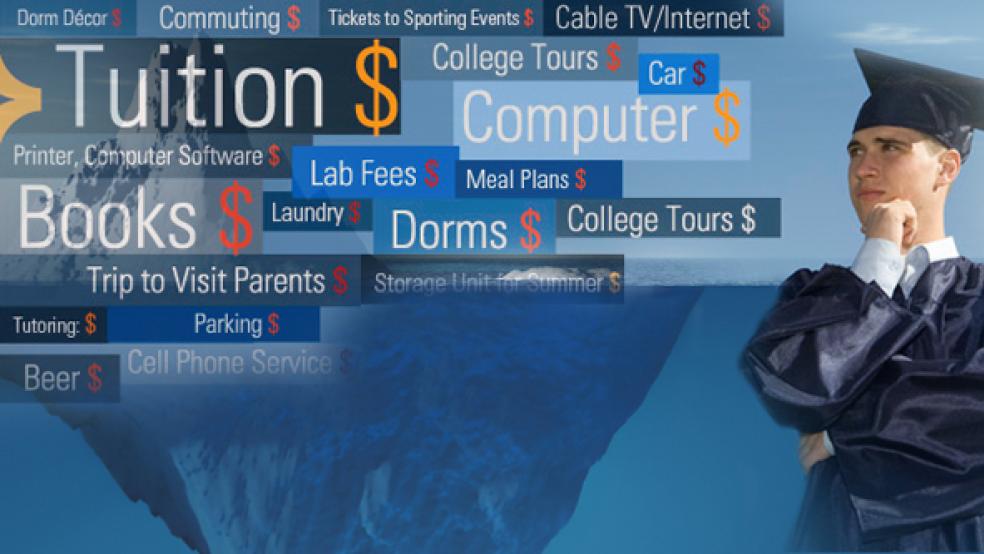U.S. congressional negotiators neared a pair of election-year deals on Tuesday, one for a massive job-creating transportation bill, the other to prevent a doubling of student-loan interest rates, said Senate Majority Leader Harry Reid. Reid, a Democrat, said it was possible that final bipartisan agreements could be reached on both long-stalled pieces of legislation before lawmakers leave at week's end for a holiday recess.
RELATED: The Growing Myth About Federal Student Loans
To make that deadline, bill text needs to be firm by Wednesday, and several elements were still "precarious" as of Tuesday evening, said James Lankford, a House Republican from Oklahoma on the negotiating panel. "It feels like we've got six different sets of plates that are spinning up there and if any one of them falls, then the whole thing is going to fall," Lankford told Reuters.
Senate negotiators reached a tentative deal to fund a one-year, $6 billion extension of the current interest rate of 3.4 percent for new Stafford loans for about 7.4 million students, aides and lawmakers said. Assistant Senate Republican leader Jon Kyl said: "We've reached an agreement on the (student loan) bill, and the only thing that would be holding that up is the politics of the highway bill."
Senate aides said the two bills could be combined, passed together and presented to President Barack Obama to sign into law as a package within days, provided Republicans in the House of Representatives go along with it. But it was unclear if they would.
One major stumbling block remained: how to deal with House Republican demands to include accelerated approval of the Keystone XL crude oil pipeline from Canada to Texas as part of the highway bill. Obama put the project on hold this year pending further environmental review. The move riled House Republicans, who say it should be promptly approved for the good of the country.
"I think Keystone's still very much in play, even right now," Republican Rob Bishop said on Tuesday evening. "It probably will be the last issue to be settled."
Federal funding for road, bridge and rail projects - and as many as 3 million construction jobs - expires on Saturday, putting lawmakers under pressure to come to an agreement on a two-year package proposed by the Senate, or craft a short-term extension at current funding levels. Neither Democrats nor Republicans want to be blamed for stalling the bill, a move that would hurt the economy ahead of the November 6 general election.
"I think its chances today are better than 50-50 that we can get a bill done," Reid said, adding that he needed a hand from the top House Republican, Speaker John Boehner. "We're still looking at Speaker Boehner to help us get that over the finish line," Reid said.
CONCESSIONS
The starting point for talks on the transportation construction bill was a two-year, $109 billion package passed by the Senate. Republicans have won some tentative concessions to streamline environmental reviews for certain types of road projects, and to ease proposed regulations for coal ash, a power-plant byproduct used in cement.
Lawmakers must move fast to prevent a doubling of the interest rate on federal Stafford student loans to 6.8 percent that would take place on July 1. In recent months, each side has swapped and rejected competing proposals. Under the tentative deal, $1.2 billion of the $6 billion needed to extend the low-interest rate for a year would come from limiting subsidized loans to 150 percent of the length of time a student attends a college. For example, the subsidy would be good for six years for those who get four-year undergraduate degrees, an aide said.
Another $5 billion would come from the way employers compute their pension liabilities while $500 million would be the result of changes in employer contributions to the Pension Benefit Guarantee Corporation, the aide said. Failure to extend the low rate would cost an estimated 7.4 million students an average of about $1,000 each in added costs over the life of their college loans, the White House estimates.
Obama began cranking up pressure on Congress in April with campaign-style speeches at college campuses urging it to extend the low rate. Republican presidential challenger Mitt Romney subsequently said that he, too, believes that the rate should be renewed, but Democratic and Republican lawmakers have wrestled over how to fund it without adding to budget deficits.
(Additional reporting by Richard Cowan and Donna Smith)

